Former Steppenwolf artistic director Martha Lavey died on April 25. Here, members of the theatre's ensemble remember their leader.
Terry Kinney
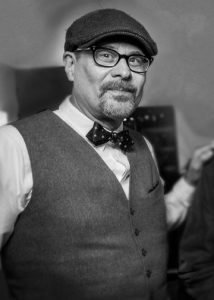
When Gary [Sinise], Jeff [Perry], and I were charged with appointing a new artistic director in 1995, Martha, who had never held a position remotely resembling it, jumped to our minds. Her fierce intellect, her curiosity, her enthusiasm, and her acute listening skills were there, but mostly, she knew what she didn’t know. We saw a leader partly in her ability to learn the job by seeking counsel when she required it, and we also felt it was time to lead our company with some…anima.
She embraced the scope of the task with blinding speed and confidence. Martha was also poised to change the culture—we were, after all, a group of college friends—by opening the doors of our smallish ensemble to the city of Chicago, and the diversity that makes it great. She became a champion of the storefront companies that represented our own roots. She simultaneously grew the institution, was active in the NEA, gave playwrights a safe home, and even occasionally graced our stage with her presence. The total shift of focus to what Steppenwolf has become is largely her vision. The glow of her lives in our space and in our hearts.
But still. We miss her smile. We miss looking up a word she just dropped in a conversation. We miss her knowing the names of everyone that worked in both buildings, and the names of their family members. Personally, I miss her opening salvo of our marathon phone calls most of all: “Hello, brother man!”
Amy Morton
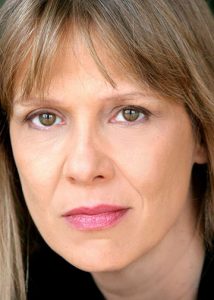
After the first stroke, when her use of language was very limited, Martha communicated more with her eyes and hands. She became a mighty hugger, holding onto you long and strong. She’d look deeply into your eyes with openness, gentleness, and concern, and there were times I felt too seen. Flustered. And she’d sit there and patiently wait for me to settle down and get real. And then she’d want to hear all about what was going on with everyone we knew. And we’d go outside and she’d be so damn happy to be looking at trees and walking. This was always the essence of Martha for me: gratitude and wonder.
I loved her very much, and I will be forever grateful for her long, abiding friendship.
Frank Galati
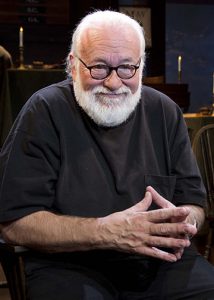
I first met Martha more than 40 years ago when she was an undergraduate in my classes at Northwestern. In one directing class, her final project was an adaptation of “Nausicaa,” the 13th episode of Joyce’s Ulysses and the first chapter in the novel to center on a female consciousness. At the time (the 1970s), before technology vastly expanded the vocabulary of theatre art, Martha devised a performance in which every member of the audience was given headphones, and while Martha moved about in a ritual space lighting dozens of candles, they heard her deep but nearly whispered interpretation of Gerty MacDowell’s text. I will never forget the murmur of her voice gently falling on my inner ear. It was clear then that Martha saw theatre art as a sacred practice.
Years later, after we both were members of the Steppenwolf ensemble, I had the privilege of directing Wallace Shawn’s remarkable Aunt Dan and Lemon with Molly Regan and Martha in the title roles. Near the end of the play, Lemon, luminous and beautiful in the pinafore of a young postulant, uncoiled an argument that embraced and all but condoned the atrocities of the Nazis and the extermination of millions. She imagines the victims as bugs to be squashed. The contrast between the purity and elegance of a young novice and the ideas she was pondering was so shocking that many audience members were deeply upset. At one matinee, a woman stood up in the middle of the speech and shouted, “Are you going to sit here and listen to this?”
Martha continued. “I’m leaving!” the woman shouted. She gathered her coat, climbed over numerous audience members and marched up onstage—the only exit in that old Halsted Street space was at one end of the room and the only way to get there from the woman’s seat was across the stage. The woman stormed behind Martha, smashed open the double doors, and ran out into the small lobby where she continued to rail against the show. Martha, the embodiment of irony, was as poised as the Virgin Mary. Her courage and absolute devotion to the lucid delivery of the text was palpable. It was a “great reckoning in a little room.”
Martha led us by example. Her intellect and eloquence illuminated and enlarged Steppenwolf’s many rooms. Her devotion to all of Chicago’s theatre artists and support of the work of virtually every theatre company in the area made her a beloved fan and patron. She served selflessly and with love. She was and will always be the Saint of Chicago Theatre.
Laurie Metcalf
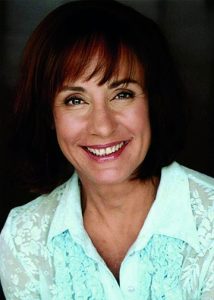
I admired my very dear friend, Martha Lavey, for her intelligence, candor, and stamina.
I loved hearing Martha speak at board meetings, openings, ensemble gatherings—her speeches were always thoughtful and resonant. She knew exactly how to command attention but made it look effortless. She was so articulate, and it seemed she could speak on any subject matter. Her essays that accompanied each production and appeared in the playbills were so informative and insightful. I learned things about plays I was actually in by reading her opinions on them!
Martha told it like it was. She was plainspoken, honest, and forthright. If you wanted her opinion, she would consider your question while looking straight into your eyes, think on the matter, and deliver it without breaking that eye contact. You knew you were getting the truth.
Martha had amazing stamina, both physical and emotional. She would put in more than a full day at work, getting there early after a 5 a.m. workout, and usually cap it off with seeing a show somewhere around town at night. She never slowed down. And it showed in her work ethic, too. Martha drove the theatre forward; she made sure we gave back to the community and young artists and playgoers. The theatre was her mission, and she gave it all her wisdom, honesty, and strength.
Tina Landau

In 1996, a musical I wrote and directed, Floyd Collins, was playing in New York when I received a phone call from someone named Martha Lavey. So what I first encountered of Martha was that voice. Sonorous, sculpted. And that eloquence. Unparalleled. I thought, “This person speaks like a poem.” Frank Galati had seen Floyd and told Martha she had to also (a visit which quickly resulted in my first show at the theatre).
This is what Martha said to me on that call, very close to exact as it’s emblazoned in my memory: “What strikes me about the piece is its verticality. Not the physical verticality of his prone body or the contrast between above and below ground—those are obvious—but the metaphysical verticality of existence itself. You know, because as humans we’re positioned at the axis mundi, feet on the Earth but drawn upward toward spirit.” I believe I answered with, “Uh…” She then added, “I think you could go even further with that in the show. Or in this case, should I say ‘deeper’? Ha ha.” (Floyd is a caver who descends underground.)
Thus I met three of the many Marthas I would come to love over the coming years: Martha the Intellectual, Martha the Spiritual Seeker, Martha the Jokester. What Martha didn’t know was that I had repeatedly used the word “verticality” to talk about the piece, but had never heard anyone else do so. I wasn’t even sure anyone knew what I meant. So I also met Martha, kindred spirit, the Seer Into People. And the person who was to become my greatest supporter, my harshest critic, my dearest friend, my traveling companion, my maddening muse. There are no words to describe the extent of her singularity, or the scope of her eccentricities, or the magnitude of the impact she made on lives. She will be with us, always. I miss you, Marth, and I love you.
Jeff Perry
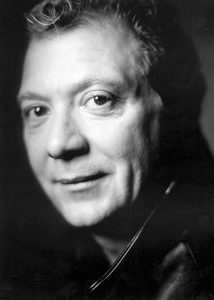
As far as I could tell, Martha always possessed a calm, indefatigable ferocity, the like of which remains singularly majestic in my experience. In Martha an alchemy of fierce intelligence, fearlessness, humor, objectivity, stubbornness, and curiosity coexisted beautifully. This alchemy fed a passionate point of view formed through decades of exploration via acting, voluminous reading, and a deliciously wide range of theatregoing.
When she first came to her artistic directorship from years of freelance acting and scholarship, I don’t think Martha had ever run anything, or ever been asked to make leadership decisions taking a multitude of other stakeholders into account. She had never been asked to be so pervasively accountable to a flock of gifted, undeniably needy artists. Taking stock of her own estimation or instincts regarding a tough situation or decision was always a great strength of Martha’s. But the artistic/emotional care and feeding of the institution and of the people who comprise Steppenwolf was, I think it fair to say, more fundamentally challenging for her. She felt the depth of that challenge and her response was quintessential Martha—she grew to meet it. Day by day, year by year, Martha expanded her own capacity for empathy, for understanding, and for love to rarefied heights. One of the precious gifts of being in Martha’s orbit was bearing witness to and drawing strength from her steady, ultimately jaw-dropping growth. She taught us to attempt the same.
Steppenwolf Theatre’s audience and its workers, theatre in Chicago large and small, American theatre, the National Endowment for the Arts, Theatre Communications Group, charitable foundations both here and abroad that support theatre—the list is long and varied of the artists and supporters of theatre who lost a unique visionary. Thousands of theatre-loving souls have been touched and changed by Martha’s abiding love of our art form.
Martha, dear friend, dear colleague, you have lived life in a way most of us dream possible. Passionately engaged in your life’s work, you left an institution you dearly loved better than you found it. Passionately connecting to your fellow humans through countless acts of insight, care, friendship, loyalty, and generosity, you leave us better for having known you.
Austin Pendleton
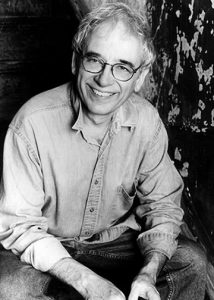
Martha became artistic director of Steppenwolf exactly when I was appointed artistic director of Circle Rep. Martha called me and told me she was excited that we were taking on these jobs at the same time and asked me what my vision was for Circle Rep. I told her my vision for Circle Rep was “phones.” Circle Rep was in dire financial straits when I took on that job. Within a year and a half of my artistic directorship Circle Rep closed its doors forever, ending the many years of a very great theatre, created and sustained by brilliant people. Martha’s time at Steppenwolf lasted for 20 years, during which time she held the ensemble together and carried the flag of Steppenwolf brilliantly and adventurously forward.
When Martha took over Steppenwolf, I was in the dumps about my work and my career as a director. I had sort of sworn off directing, except when doing a few personal favors for playwrights whose work I really admired. Then, in 2001, I went up to Smith College to direct The Children’s Hour by Lillian Hellman. My daughter was at Smith and was not in the production (she didn’t want to be and is now a surgeon), but I just wanted to be on the Smith campus for a few weeks while she was there. That’s the sole reason I took that job (that and the fact that I personally and artistically loved Lillian Hellman). And I had such a fine time doing the show that I decided I wanted to direct again. I called producers and artistic directors I’d worked with, and they all said that was great. None of them ever called back—except for Martha, who put me right back to work and continued to give me great directing jobs for the rest of her time there.
Martha would see run-throughs and previews. She would call me into her office to talk about what she saw. She urged me not to listen to any praise for any of these productions, not while they were in previews. This was hard, because I love to listen to praise. But she was right. She was just about always right. She changed the way I look at the process of my work. She was patient. She was stern. She was loving. She was clearly devoted to the thought that I (at an advanced age) could continue to grow as a director, and as a worker in any capacity in the vineyard of the theatre. She was also very funny.
I miss her something fierce. And the best I can do is try to carry forward what she taught me. Happily, Steppenwolf is in splendid hands right now, so whether it’s there or wherever I work as a director, whatever virtues the work might possess will owe a lot to Martha Lavey.
Yasen Peyankov
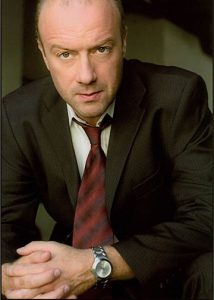
I met Martha in the fall of 1996. I was called back for my first show at Steppenwolf, Time to Burn, directed by Tina Landau. I went to the callback and Martha was there with Tina. She greeted me warmly and announced that she was going to be my reader at the audition. I was blown away that the artistic director would read with anyone at an audition, let alone me. I remember taking a deep breath and sizing up this tall, striking woman. The scene was intense and the characters were coming hard at each other. I came to the callback with a prop: a screwdriver that I was going to pull on her in the heat of the argument. She was an incredible partner. She was completely fixed on me, absolutely committed to the truth of the moment. When we got to the screwdriver she didn’t even blink but escalated the scene to the next level, and it felt like I wasn’t auditioning for Steppenwolf—I was acting with Martha Lavey at Steppenwolf.
I got the part and six shows and six years later, Martha and I sat across each other in her office and she invited me to join the ensemble. I felt so elated, I felt like flying. Over the years, Martha became a good friend to my whole family. When I got married, a couple of months after the wedding I was at the theatre and Martha greeted me with, “So Yasen, is Bisa (my wife) pregnant yet?” Not even a week before that we had found out that we were having a baby. She could see right through you; her intuition was spot on and it never failed her. When Anya was born, Martha was the first one to call in the morning to congratulate us.
Martha was one of the smartest people I’ve ever met. She had a way with language where she would not only make her point clear but do it in a way that was eloquent, exciting, and always positive. She loved artists and always found a way to make you feel great about the work you were doing. She always had the most inspiring feedback. She was also extremely humble and a great listener. In every conversation she wanted to hear about you and your family, completely genuine and always curious.
She was also super funny. I have so many one-liners from her over the years that I could fill a book. I remember a few years ago I was in The Tempest, and I had grown a ridiculously long mustache and sideburns for the character. We were at a party and Martha, who was sitting across from me, looked at me and with intent announced: “Yasen, this is quite unfortunate hair.”
That was our Martha, and hardly a day goes by when I don’t think of her. I miss her terribly.
Ora Jones
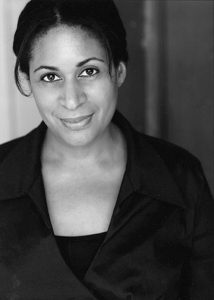
Martha Lavey called me one day and asked if I had time for coffee.
Martha and I had known each other for ages. She’s one of my heroes. That brain of hers—I could not begin to fathom. But we didn’t really hang out that much. Martha woke up long before the sun rose. If I saw the dawn at all, it was because I’d been up all night.
We met down the street from a theatre where I was working. She was calm and smiling. I was late and crazy. We sat down with our drinks. She asked how I was. She asked how things were going. She asked if I was happy.
I told her I was very excited about the show. I was thrilled to be a part of the Chicago theatre community and proud to be an actor. I was happy.
She was quiet for a moment.
“I’m glad to hear that. I’m glad to know that you’re excited about your show, about your career, and being an actor in Chicago. I’m just wondering.”
(Crap.)
(Dammit, Martha. Dammit, dammit, dammit, Martha. Please don’t tell me that my life is a lie, that I’m a complete fraud, that I have no business on any stage, anywhere. I mean, I’ve always suspected it, but dammit, Martha. Dammit, dammit, dammit, dammit…)
“I’m just wondering. How would you feel about continuing your work at Steppenwolf?
I mean.
As an ensemble member. With Steppenwolf.”
…
(F*******************************************************************CK.)
Um. Well, y’know, Martha. I mean, what does that mean?
What I didn’t realize until a few years later is that, when she asked those three questions—How are you? How are things going? Are you happy?—even though she was offering an invitation to work, she wasn’t asking about work. She was asking: How are you? How are things going? Are you happy?
In those days, my whole life was about work. Over time, she continued to ask. And over time, my answers became less about my work and more about my life. I stopped trying to be polite or correct or brilliant or funny. Challenges, victories, sorrows, joys. Didn’t matter. It was my life. And she wanted to know all of it.
I will always be grateful to her for that.
The last time I saw her, we met up on our respective walks along the lake. I remember it was a beautiful morning.
Mornings. She did that too.
Dammit, Martha.
Molly Regan
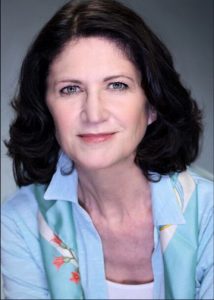
So often, when people write about someone who is gone, the tribute turns out to be more about the writer than the subject. I hope that is not the case here. But to talk about Martha is to relate how she related to other people.
She was known for being a great nurturer of writers as well as actors. I think it is no coincidence that there are writers in our company of the caliber of Tarell Alvin McCraney, Bruce Norris, Tracy Letts, Austin Pendleton, Tina Landau, Frank Galati, and Eric Simonson. She gave them the encouragement and opportunity to do great work. But she also championed those of us who are less gifted and found things in us we never knew we had.
Seven years ago, Martha asked me if I wrote. She was amused by an email I had sent her. Now, you have to understand how intellectually intimidating Martha could be. She was a brilliant woman, and I was stunned that she would think I could put two sentences together. I told her I was writing personal essays, but had no talent for writing plays. She said, “Send me what you write.” And even though she had to read scores of plays in order to program our season, she always took the time to read and comment on my essays within a week or two. As time passed, I had a little collection, and she encouraged me to pursue my wild idea of turning them into a small solo theatre piece. (Aging actresses have to do something—a condition Martha also recognized, as on more than one occasion I was offered roles she could have played brilliantly herself.)
On March 14, I had the chance to present my piece in a workshop at Steppenwolf. Martha, with some difficulty, managed to be there. So the last time I saw her, she was still nurturing a writer. Despite her own enormous challenges in trying to recover from her first stroke, she was still giving of herself in order to support someone else. That was Martha. Nurturing a writer, an actor, a director, a small Chicago theatre company, or a friend who had fallen on hard times was her way in the world.
I will never forget the conversation we had afterward—how with her beaming, beautiful smile, and tightly gripping my knee as she struggled for the words her aphasia had cruelly robbed her of, she insisted I keep performing my piece. (“But cut 10 minutes!”) And the greatest gift she gave me was allowing me to tell her that it would not have existed without her, to thank her for that, and to tell her that I loved her.
I have cut the 10 minutes. And I have future performances coming. Thanks to Martha Lavey, who thought that maybe I could put two sentences together.


